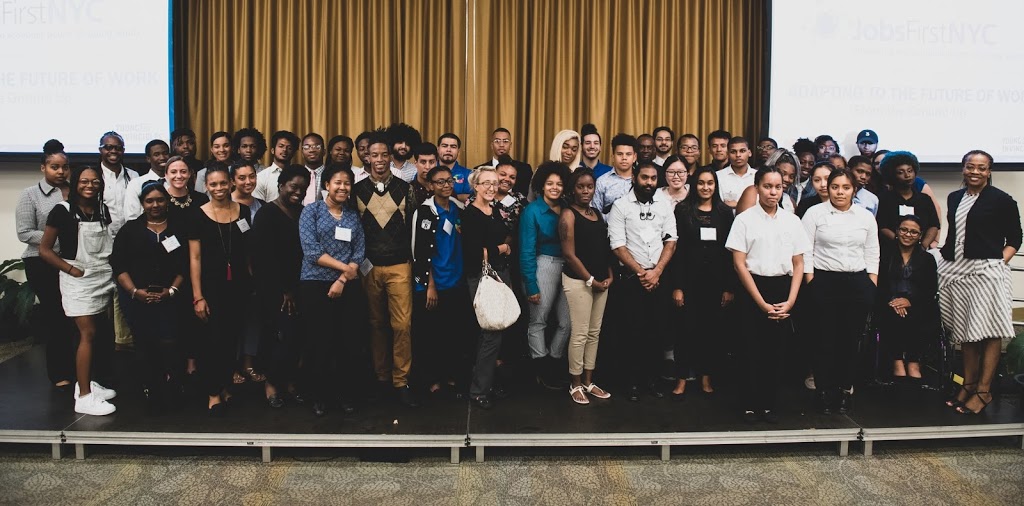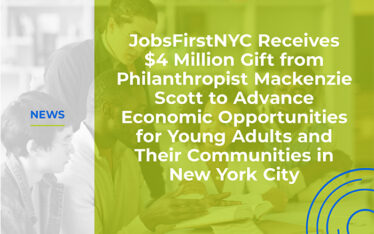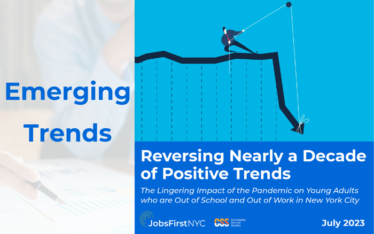Why We Continue To Celebrate Black History Month
At JobsFirstNYC, many of the young adults whose lives we aim to help shape are Black Americans, and only recently is the rest of the world getting fully exposed to the depth of their ancestor’s roles and contributions to American society. As we commence the 2021 celebration of Black History Month, we commemorate the invaluable contributions of Black Americans and honor the diversity that has made the United States of America a great nation.
It is important to first acknowledge that Black history is America’s history, and celebrating or participating in Black History Month activities ought to be as American as apple pie. Part of the reason that a month has had to be set aside to recognize the accomplishments and struggles of African Americans is that history books have never done justice to the story of Black people. This lack of recognition of the input of Blacks in western countries is also why the month of February is celebrated as Black History Month in Canada, the Netherlands, and the UK.
The theme for this year’s Black History Month will be “The Black Family: Representation, Identity, and Diversity.” This emphasis is well placed, as the racial unrest of 2020 showed the world the devastating wounds that Black families have suffered at the hands of an unbalanced justice system in the United States. The unfair application of justice to the Black population has always existed, but technology has helped bring the appalling evidence to light in a way that cannot be ignored. This year, all of America must come together to lift up Black families and start an open conversation so the country can move forward.
On top of this cultural crisis, the COVID-19 pandemic has wreaked havoc across the world, with data revealing disproportionate effects on Black and Brown families. Many of our nation’s Black families lack proper healthcare, and Black people constitute a large portion of the vulnerable frontline workers on whom COVID-19 continues to exact a higher mental, physical, and economic toll. According to a recent survey conducted by The Undefeated and the Kaiser Family Foundation, “the pandemic has left one-third of Black adults struggling to pay for basic necessities, including about half of Black women with children. Half of Black adults said someone in their household has lost a job, been furloughed or had their income or hours reduced since the pandemic struck in February. Among Black parents, the number rises to two-thirds.”
The pandemic has also largely erased recent gains in college enrollments among college-age Black youth. Therefore, it will be important for the new Biden administration to direct additional resources toward educational justice, particularly for Black youth. It is an unfortunate and indisputable fact that the quality of education is largely based on where one lives, with young people in cities such as New York being hindered by inadequate funding for college preparation courses and career training.
Celebrating Black History Month keeps the spotlight on the inequities inherent in an antiquated and unbalanced education system. At the same time, it showcases the successes and inspirations that keep emerging, such as the poem “The Hill We Climb,” which was written and recited by National Youth Poet Laureate Amanda S. C. Gorman at President Biden’s inauguration. February gives us 28 days to contemplate both the celebrations and the gaps that persist in this country. The Black history agenda must be revisited and updated every year to ensure it remains accurate and relevant. JobsFirstNYC remains steadfast in our goal to build equitable pathways to postsecondary education and career opportunities, to source solutions from diverse perspectives and experiences, and to identify, design, and advance practices and policies that achieve better outcomes for young adults and the communities in which they live. America’s young people are our top priority and a true and inclusive history is a necessary framework on which to move forward.





